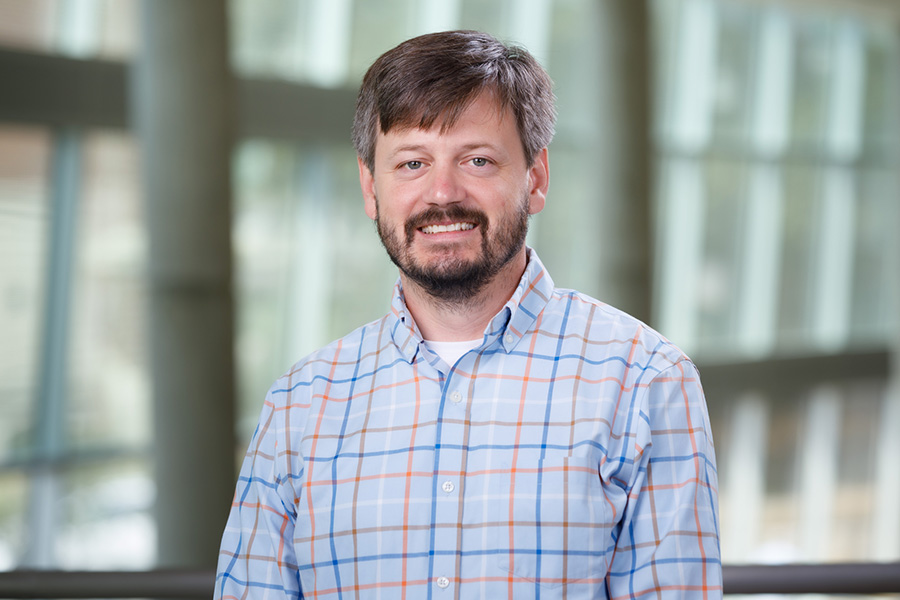Kyle J. Hewitt, PhD
Associate Professor, Department of Genetics, Cell Biology, and Anatomy
Co-Director, Molecular Genetics & Cell Biology PhD Program
Director, Single Cell and Spatial Transcriptomics Core

Dr. Hewitt's research is focused on understanding mechanisms of stem cell self-renewal and differentiation, genesis and maintenance of stem/progenitor cells in hematopoiesis, and how aberrant control of cis-regulatory elements can lead to anemia and leukemia. His lab has discovered GATA transcription factor target genes, including the Sterile Alpha Motif Domain-14 (Samd14) gene, which promotes cell signaling and red blood cell regeneration via receptor tyrosine kinase signaling. Dr. Hewitt's laboratory uses human and mouse cell assays, genetic mouse models, leukemia cell lines, and computational approaches to discover new pathways and mechanisms of regenerative hematopoiesis and leukemia.
- Post-doc, University of Wisconsin-Madison
- PhD, Cell, Molecular, Developmental Biology, Tufts University
- BA, Biology, Colorado College
Outstanding questions:
- How do GATA transcription factors coordinate red blood cell regeneration in anemia and leukemia?
- What are the features that dictate the function of cis-regulatory elements in erythroid and myeloid progenitor cells?
- How do signaling pathways coordinate up- and downstream cellular activities through common intermediates in stress?
985805 Nebraska Medical Center
Omaha, NE 68198-5805